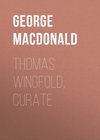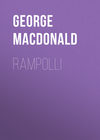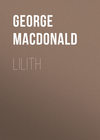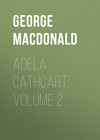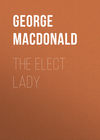Czytaj książkę: «Thomas Wingfold, Curate», strona 3
CHAPTER VII. THE COUSINS
George Bascombe was a peculiar development of the present century, almost of the present generation. In the last century, beyond a doubt, the description of such a man would have been incredible. I do not mean that he was the worse or the better for that. There are types both of good and of evil which to the past would have been incredible because unintelligible.
It is very hard sometimes for a tolerably honest man, as we have just seen in the case of Wingfold, to say what he believes, and it ought to be yet harder to say what another man does not believe; therefore I shall presume no farther concerning Bascombe in this respect than to say that the thing he SEEMED most to believe was that he had a mission to destroy the beliefs of everybody else. Whence he derived this mission he would not have thought a reasonable question—would have answered that, if any man knew any truth unknown to another, understood any truth better, or could present it more clearly than another, the truth itself was his commission of apostleship. And his stand was indubitably a firm one. Only there was the question—whether his presumed commission was verily truth or no. It must be allowed that a good deal turns upon that.
According to the judgment of some men who thought they knew him, Bascombe was as yet—I will not say incapable of distinguishing, but careless of the distinction between—not a fact and a law, perhaps, but a law and a truth. They said also that he inveighed against the beliefs of other people, without having ever seen more than a distorted shadow of those beliefs—some of them he was not capable of seeing, they said—only capable of denying. Now while he would have been perfectly justified, they said, in asserting that he saw no truth in the things he denied, was he justifiable in concluding that his not seeing a thing was a proof of its non-existence—anything more, in fact, than a presumption against its existence? or in denouncing every man who said he believed this or that which Bascombe did not believe, as either a knave or a fool, if not both in one? He would, they said, judge anybody—a Shakespeare, a Bacon, a Milton—without a moment’s hesitation or a quiver of reverence—judge men who, beside him, were as the living ocean to a rose-diamond. If he was armed in honesty, the rivets were of self-satisfaction. The suit, they allowed, was adamantine, unpierceable.
That region of a man’s nature which has to do with the unknown was in Bascombe shut off by a wall without chink or cranny; he was unaware of its existence. He had come out of the darkness, and was going back into the darkness; all that lay between, plain and clear, he had to do with—nothing more. He could not present to himself the idea of a man who found it impossible to live without some dealings with the supernal. To him a man’s imagination was of no higher calling than to amuse him with its vagaries. He did not know, apparently, that Imagination had been the guide to all the physical discoveries which he worshipped, therefore could not reason that perhaps she might be able to carry a glimmering light even into the forest of the supersensible.
How far he was original in the views he propounded, will, to those who understand the times of which I write, be plain enough. The lively reception of another man’s doctrine, especially if it comes over water or across a few ages of semi-oblivion, and has to be gathered with occasional help from a dictionary, raises many a man, in his own esteem, to the same rank with its first propounder; after which he will propound it so heartily himself as to forget the difference, and love it as his own child.
It may seem strange that the son of a clergyman should take such a part in the world’s affairs, but one who observes will discover that, at college at least, the behaviour of sons of clergymen resembles in general as little as that of any, and less than that of most, the behaviour enjoined by the doctrines their fathers have to teach. The cause of this is matter of consideration for those fathers. In Bascombe’s case, it must be mentioned also that, instead of taking freedom from prejudice as a portion of the natural accomplishment of a gentleman, he prided himself upon it, and THEREFORE would often go dead against the things presumed to be held by THE CLOTH, long before he had begun to take his position as an iconoclast.
Lest I should, however, tire my reader with the delineations of a character not of the most interesting, I shall, for the present, only add that Bascombe had persuaded himself, and without much difficulty, that he was one of the prophets of a new order of things. At Cambridge he had been so regarded by a few who had lauded him as a mighty foe to humbug—and in some true measure he deserved the praise. Since then he had found a larger circle, and had even radiated of his light, such, as it was, from the centres of London editorial offices. But all I have to do with now is the fact that he had grown desirous to add his cousin, Helen Lingard, to the number of those who believed in him, and over whom, therefore, he exercised a prophet’s influence.
No doubt it added much to the attractiveness of the intellectual game that the hunt was on the home grounds of such a proprietress as Helen—a handsome, a gifted, and, above all, a ladylike young woman. To do Bascombe justice, the fact that she was an heiress also had very little weight in the matter. If he had ever had any thought of marrying her, that thought was not consciously present to him when first he became aware of his wish to convert her to his views of life. But, although he was not in love with her, he admired her, and believed he saw in her one that resembled himself.
As to Helen, although she was no more conscious of cause of self-dissatisfaction than her cousin, she was not therefore positively self-satisfied like him. For that her mind was not active enough.
If it seem, as it may, to some of my readers, difficult to believe that she should have come to her years without encountering any questions, giving life to any aspirations, or even forming any opinions that could rightly be called her own, I would remind them that she had always had good health, and that her intellectual faculties had been kept in full and healthy exercise, nor had once afforded the suspicion of a tendency towards artistic utterance in any direction. She was no mere dabbler in anything: in music, for instance, she had studied thorough bass, and studied it well; yet her playing was such as I have already described it. She understood perspective, and could copy an etching, in pen and ink, to a hair’s-breadth, yet her drawing was hard and mechanical. She was pretty much at home in Euclid, and thoroughly enjoyed a geometric relation, but had never yet shown her English master the slightest pleasure in an analogy, or the smallest sympathy with any poetry higher than such as very properly delights schoolboys. Ten thousand things she knew without wondering at one of them. Any attempt to rouse her admiration, she invariably received with quiet intelligence but no response. Yet her drawing-master was convinced there lay a large soul asleep somewhere below the calm grey morning of that wide-awake yet reposeful intelligence.
As far as she knew—only she had never thought anything about it—she was in harmony with creation animate and inanimate, and for what might or might not be above creation, or at the back, or the heart, or the mere root of it, how could she think about a something the idea of which had never yet been presented to her by love or philosophy, or even curiosity? As for any influence from the public offices of religion, a contented soul may glide through them all for a long life, unstruck to the last, buoyant and evasive as a bee amongst hailstones. And now her cousin, unsolicited, was about to assume, if she should permit him, the unspiritual direction of her being, so that she need never be troubled from the quarter of the unknown.
Mrs. Ramshorn’s house had formerly been the manor-house, and, although it now stood in an old street, with only a few yards of ground between it and the road, it had a large and ancient garden behind it. A large garden of any sort is valuable, but an ancient garden is invaluable, and this one had retained a very antique loveliness. The quaint memorials of its history lived on into the new, changed, unsympathetic time, and stood there, aged, modest, and unabashed. Yet not one of the family had ever cared for it on the ground of its old-fashionedness; its preservation was owing merely to the fact that their gardener was blessed with a wholesome stupidity rendering him incapable of unlearning what his father, who had been gardener there before him, had had marvellous difficulty in teaching him. We do not half appreciate the benefits to the race that spring from honest dulness. The CLEVER people are the ruin of everything.
Into this garden, Bascombe walked the next morning, after breakfast, and Helen, who, next to the smell of a fir-wood fire, honestly liked the odour of a good cigar, spying him from her balcony, which was the roof of the veranda, where she was trimming the few remaining chrysanthemums that stood outside the window of her room, ran down the little wooden stair that led from it to the garden, and joined him. Nothing could just at present have been more to his mind.
CHAPTER VIII. THE GARDEN
“Take a cigar, Helen?” said George.
“No, thank you,” answered Helen; “I like it diluted.”
“I don’t see why ladies should not have things strong as men.”
“Not if they don’t want them. You can’t enjoy everything—I mean, one can’t have the strong and the delicate both at once. I don’t believe a smoker can have the same pleasure in smelling a rose that I have.”
“Isn’t it a pity we never can compare sensations?”
“I don’t think it matters much: everyone would have to keep to his own after all.”
“That’s good, Helen! If ever man try to humbug you, he will find he has lost his stirrups. If only there were enough like you left in this miserable old hulk of a creation!”
It was an odd thing that when in the humour of finding fault, Bascombe would not unfrequently speak of the cosmos as a creation. He was himself unaware of the curious fact.
“You seem to have a standing quarrel with the creation, George! Yet one might think you had as little ground as most people to complain of your portion in it,” said Helen.
“Well, you know, I don’t complain for myself. I don’t pretend to think I am specially ill-used. But I am not everybody. And then there’s such a lot of born-fools in it!”
“If they are born-fools they can’t help it.”
“That may be; only it makes it none the pleasanter for other people; but, unfortunately, they are not the only or the worst sort of fools. For one born-fool there are a thousand wilful ones. For one man that will honestly face an honest argument, there are ten thousand that will dishonestly shirk it. There’s that curate-fellow now—Wingfold I think aunt called him—look at him now!”
“I can’t see much in him to rouse indignation,” said Helen. “He seems a very inoffensive man.”
“I don’t call it inoffensive when a man sells himself to the keeping up of a system that–”
Here Bascombe checked himself, remembering that a sudden attack upon what was, at least, the more was the pity, a time-honoured system, might rouse a woman’s prejudices; and as Helen had already listened to a large amount of undermining remark without perceiving the direction of his tunnels, he resolved, before venturing an open assault, to make sure that those prejudices stood, lightly borne, over an abyss of seething objection. He had had his experiences as the prophet-pioneer of glad tidings to the nations, and had before now, although such weakness he could not anticipate in Helen, seen one whom he considered a most promising pupil, turned suddenly away in a storm of terror and disgust.
“What a folly is it now,” he instantly resumed, leaving the general and attacking a particular, “to think to make people good by promises and threats—promises of a heaven that would bore the dullest among them to death, and threats of a hell the very idea of which, if only half conceived, would be enough to paralyse every nerve of healthy action in the human system!”
“All nations have believed in a future state, either of reward or punishment,” objected Helen.
“Mere Brocken-spectres of their own approbation or disapprobation of themselves. And whither has it brought the race?”
“What then would you substitute for it, George?”
“Why substitute anything? Ought not men be good to one another because they are made up of ones and others? Do you or I need threats and promises to make us kind? And what right have we to judge others worse than ourselves? Mutual compassion,” he went on, blowing out a mouthful of smoke and then swelling his big chest with a huge lungsful of air, “might be sufficient to teach poor ephemerals kindness and consideration enough to last their time.”
“But how would you bring such reflections to bear?” asked Helen, pertinently.
“I would reason thus: You must consider that you are but a part of the whole, and that whatever you do to hurt the whole, or injure any of its parts, will return upon you who form one of those parts.”
“How would that influence the man whose favourite amusement is to beat his wife!”
“Not at all, I grant you. But that man is what he is from being born and bred under a false and brutal system. Having deluged his delicate brain with the poisonous fumes of adulterated liquor, and so roused all the terrors of a phantom-haunted imagination, he sees hostile powers above watching for his fall, and fiery ruin beneath gaping to receive him, and in pure despair acts like the madman the priests and the publicans have made him. Helen,” continued Bascombe with solemnity, regarding her fixedly, “to deliver the race from the horrors of such falsehoods, which by no means operate only on the vulgar and brutal, for to how many of the most refined and delicate of human beings are not their lives rendered bitter by the evil suggestions of lying systems—I care not what they are called—philosophy, religion, society, I care not?—to deliver men, I say, from such ghouls of the human brain, were indeed to have lived! and in the consciousness of having spent his life in the slaying of such dragons, a man may well go from the nameless past into the nameless future rejoicing, careless even if his poor length of days be shortened by his labours to leave blessing behind him, and, full of courage even in the moment of final dissolution, cast her mockery back into the face of mocking Life, and die her enemy, and the friend of Death!”
George’s language was a little confused. Perhaps he mingled his ideas a little for Helen’s sake—or rather for obscurity’s sake. Anyhow, the mournful touch in it was not his own, but taken from the poems of certain persons whose opinions resembled his, but floated on the surface of mighty and sad hearts. Tall, stately, comfortable Helen walked composedly by his side, softly shared his cigar, and thought what a splendid pleader he would make. Perhaps to her it sounded rather finer than it was, for its tone of unselfishness, the aroma of self-devotion that floated about it, pleased and attracted her. Was not here a youth in the prime of being and the dawn of success, handsome, and smoking the oldest of Havannahs, who, so far from being enamoured of his own existence, was anxious and careful about that of less favoured mortals, for whose welfare indeed he was willing to sacrifice his life?—nothing less could be what he meant. And how fine he looked as he said it, with his head erect, and his nostrils quivering like those of a horse! For his honesty, that was self-evident!
Perhaps, had she been capable of looking into it, the self-evident honesty might have resolved itself into this—that he thoroughly believed in himself; that he meant what he said; and that he offered her nothing he did not prize and cleave to as his own.
To one who had read Darwin, and had chanced to see them as they walked in their steady, stately young life among the ancient cedars and clipped yews of the garden, with the rags and tatters of the ruined summer hanging over and around them, they must have looked as fine an instance of natural selection as the world had to show. And now in truth for the first time, with any shadow of purpose, that is, did the thought of Helen as a wife occur to Bascombe. She listened so well, was so ready to take what he presented to her, was evidently so willing to become a pupil, that he began to say to himself that here was the very woman made—no, not made, that implied a maker—but for him, without the MADE; that is, if ever he should bring himself by marriage to limit the freedom to which man, the crown of the world, the blossom of nature, the cauliflower of the spine, was predestined or doomed, without will in himself or beyond himself, from an eternity of unthinking matter, ever producing what was better than itself in the prolific darkness of non-intent.
CHAPTER IX. THE PARK
At the bottom of Mrs. Ramshorn’s garden was a deep sunk fence, which allowed a large meadow, a fragment of what had once been the manor-park, to belong, so far as the eye was concerned, to the garden. Nor was this all, for in the sunk fence was a door with a little tunnel, by which they could pass at once from the garden to the meadow. So, the day being wonderfully fine, Bascombe proposed to his cousin a walk in the park, the close-paling of which, with a small door in it, whereto Mrs. Ramshorn had the privilege of a key, was visible on the other side of the meadow. The two keys had but to be fetched from the house, and in a few minutes they were in the park. The turf was dry, the air was still, and although the woods were very silent, and looked mournfully bare, the grass drew nearer to the roots of the trees, and the sunshine filled them with streaks of gold, blending lovelily with the bright green of the moss that patched the older stems. Neither horses nor dogs say to themselves, I suppose, that the sunshine makes them glad, yet both are happier, after the rules of equine and canine existence, on a bright day: neither Helen nor George could have understood a poem of Keats—not to say Wordsworth—(I do not mean they would not have fancied they did)—and yet the soul of nature that dwelt in these common shows did not altogether fail of influence upon them.
“I wonder what the birds do with themselves all the winter,” said Helen.
“Eat berries, and make the best of it,” answered George.
“I mean what becomes of them all. We see so few of them.”
“About as many as you see in summer. Because you hear them you fancy you see them.”
“But there is so little to hide them in winter.”
“Little is wanted to hide our dusky creatures.”
“They must have a hard time of it in frost and snow.”
“Oh! I don’t know,” returned George. “They enjoy life on the whole, I believe. It ain’t such a very bad sort of a world as some people would have it. Nature is cruel enough in some of her arrangements, it can’t be denied. She don’t scruple to carry out her plans. It is nothing to her that for the life of one great monster of a high-priest, millions upon millions of submissive little fishes should be sacrificed; and then if anybody come within the teeth of her machinery, don’t she mangle him finely—with her fevers and her agues and her convulsions and consumptions and what not? But still, barring her own necessities, and the consequences of man’s ignorance and foolhardiness, she is on the whole rather a good-natured old woman, and scatters a deal of tolerably fair enjoyment around her.”
“One WOULD think the birds must be happy in summer, at least, to hear them sing,” corroborated Helen.
“Yes, or to see them stripping a hawthorn bush in winter—always provided the cat or the hawk don’t get hold of them. With that nature does not trouble herself. Well, it’s soon over—with all of us, and that’s a comfort. If men would only get rid of their cats and hawks,—such as the fancy for instance, that all their suffering comes of the will of a malignant power! That is the kind of thing that makes the misery of the world!”
“I don’t quite see–” began Helen.
“We were talking about the birds in winter,” interrupted George, careful not to swell too suddenly any of the air-bags with which he would float Helen’s belief. He knew wisely, and he knew how, to leave a hint to work while it was yet not half understood. By the time it was understood, it would have grown a little familiar: the supposed pup when it turned out a cub, would not be so terrible as if it had presented itself at once as leonate.
And so they wandered across the park, talking easily.
“They’ve got on a good way since I was here last,” said George, as they came in sight of the new house the new earl was building. “But they don’t seem much in a hurry with it either.”
“Aunt says it is twenty years since the foundations were laid by the uncle of the present earl,” said Helen; “and then for some reason or other the thing was dropped.”
“Was there no house on the place before?”
“Oh! yes—not much of a house, though.”
“And they pulled it down, I suppose.”
“No; it stands there still.”
“Where?”
“Down in the hollow there—over those trees—about the worst place they could have built in. Surely you have seen it! Poldie and I used to run all over it.”
“No, I never saw it. Was it empty then?”
“Yes, or almost. I can remember some little attention paid to the garden, but none to the house. It is just falling slowly to pieces. Would you like to see it?”
“That I should,” returned Bascombe, who was always ready for any new impression on his sensorium, and away they went to look at the old house of Glaston as it was called, after some greatly older and probably fortified place.
In the hollow all the water of the park gathered to a lake before finding its way to the river Lythe. This lake was at the bottom of the old garden, and the house at the top of it. The garden was walled on the two sides, and the walls ran right down to the lake. There were wonderful legends current amongst the children of Glaston concerning that lake, its depth, and the creatures in it; and one terrible story, which had been made a ballad of, about a lady drowned in a sack, whose ghost might still be seen when the moon was old, haunting the gardens and the house. Hence it came that none of them went near it, except those few whose appetites for adventure now and then grew keen enough to prevent their imaginations from rousing more fear than supplied the proper relish of danger. The house itself even those few never dared to enter.
Not so had it been with Helen and Leopold. The latter had imagination enough to receive everything offered, but Helen was the leader, and she had next to none. In her childhood she had heard the tales alluded to from her nurses, but she had been to school since, and had learned not to believe them; and certainly she was not one to be frightened at what she did not believe. So when Leopold came in the holidays, the place was one of their favoured haunts, and they knew every cubic yard in the house.
“Here,” said Helen to her cousin, as she opened the door in a little closet, and showed a dusky room which had no window but a small one high up in the wall of a back staircase, “here is one room into which I never could get Poldie without the greatest trouble. I gave it up at last, he always trembled so till he got out again. I will show you such a curious place at the other end of it.”
She led the way to a closet similar to that by which they had entered, and directed Bascombe how to raise a trap which filled all the floor of it so that it did not show. Under the trap was a sort of well, big enough to hold three upon emergency.
“If only they could contrive to breathe,” said George. “It looks ugly. If it had but a brain and a tongue it could tell tales.”
“Come,” said Helen. “I don’t know how it is, but I don’t like the look of it myself now. Let us get into the open air again.”
Ascending from the hollow, and passing through a deep belt of trees that surrounded it, they came again to the open park, and by-and-by reached the road that led from the lodge to the new building, upon which they presently encountered a strange couple.
